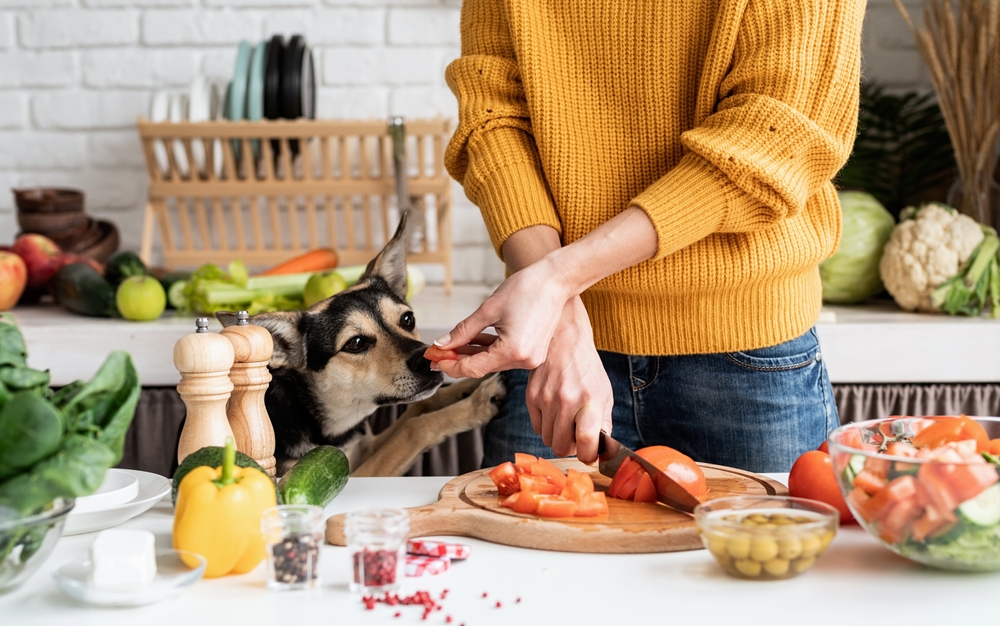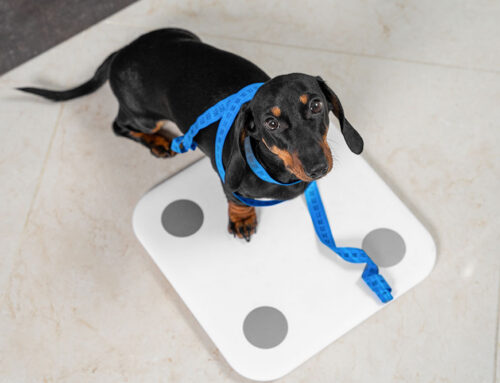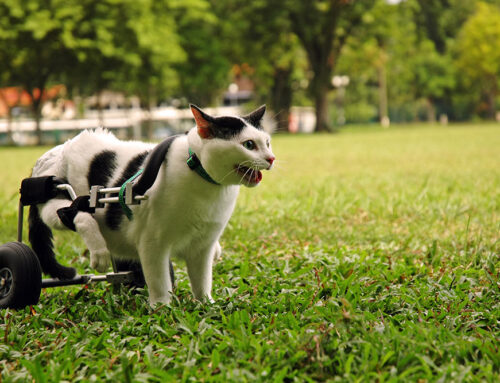As a devoted pet owner, you put an incredible amount of time into ensuring your four-legged friend leads a happy, healthy life. From spending hours comparing joint supplements, to learning how to correctly clean your dog’s ears, you strive to do the best for your pet. Diet is one crucial aspect of their health and wellbeing, and while commercial pet food options are convenient, homemade pet food is a growing trend. However, before you plate up a home-cooked five-course meal for your pet, weigh the pros and cons of homemade pet diets that our Cupertino Animal Hospital team outlines below.
Pros of homemade pet diets
Homemade pet diets are attractive to pet owners because they provide the following benefits:
- Ingredient control — One of the primary advantages of preparing your pet’s food at home is having complete control over the ingredients. Unlike commercial pet food, which may contain fillers, additives, and preservatives, homemade meals allow you to select fresh, high-quality ingredients. This means you can tailor the diet to meet your pet’s specific nutritional needs and avoid any ingredients that may trigger allergies or sensitivities.
- Nutritional quality — Homemade pet food allows you to ensure that your furry friend receives a well-balanced and nutritious diet. You can incorporate a variety of proteins, carbohydrates, fruits, and vegetables to provide essential vitamins and minerals, ensuring a balanced diet is achieved. By avoiding processed ingredients and artificial additives, you can promote better overall health and longevity for your pet.
- Customization — Every pet is unique, with individual dietary requirements and preferences. Homemade pet food offers the flexibility to customize meals according to your pet’s taste preferences, age, activity level, and any underlying health conditions. Whether your working dog requires extra protein to maintain healthy muscles, or your cat despises all fishy flavors, homemade meals can be tailored to suit their needs.
- Better digestibility — Commercial pet foods often contain ingredients that may be difficult for some pets to digest, leading to gastrointestinal issues such as gas, diarrhea, or vomiting. Homemade meals made from fresh and natural ingredients are generally easier for pets to digest, reducing the risk of digestive upset and promoting better nutrient absorption.
While there are several benefits to making your pet’s food at home, it’s essential to approach homemade pet nutrition with careful consideration and consultation with Dr. Kureshi or a board-certified veterinary nutritionist. We can provide guidance on formulating balanced recipes, portion sizes, and any supplements that may be necessary to ensure your pet’s nutritional needs are met.
Cons of homemade pet diets

When contemplating making your pet’s food at home, consider the following:
- Nutritional imbalance — One of the most significant concerns with homemade pet food is the risk of nutritional imbalance. Pets require a precise balance of proteins, carbohydrates, fats, vitamins, and minerals to maintain optimal health, and accuracy can be exceptionally difficult. Without careful planning and consultation with a veterinary nutritionist, homemade diets may lack essential nutrients or contain excessive amounts of certain nutrients, leading to nutritional imbalances and serious health consequences over time.
- Time and effort — Preparing homemade pet food requires a significant investment of time and effort. Unlike commercial pet food, which can be conveniently purchased and served, homemade meals require planning, shopping for ingredients, preparation, and cooking. Busy pet owners may be challenged to find the time needed to consistently prepare their pet balanced meals, leading to dietary inconsistency.
- Cost considerations — While homemade pet food may seem cost-effective compared with commercial options, in reality, it can be quite expensive. The high-quality ingredients, supplements, and specialized equipment needed to prepare homemade pet food can add up quickly. Additionally, veterinary consultations and potential nutritional supplements to ensure a balanced diet may further increase expenses.
- Contamination risk — Improper handling, storage, or preparation of homemade pet food can increase the risk of bacterial contamination and foodborne illnesses. Pets, like people, are susceptible to food poisoning from pathogens such as salmonella, E. coli, or listeria. If your household includes children, the elderly, or immunocompromised people, they are at a much higher risk for contracting a foodborne illness. Ensuring proper hygiene practices and cooking techniques is crucial for minimizing this risk, and diligence and attention to detail are required.
- Lack of quality control — While homemade pet food offers the advantage of knowing exactly what is in your pet’s meals, you have to rely on the quality and freshness of ingredients available. In some cases, sourcing high-quality ingredients may be challenging or expensive, which may compromise the diet’s nutritional value. Additionally, homemade pet food lacks the rigorous quality control measures of commercial pet food manufacturers that ensure safety and consistency.
- Potential for overfeeding or underfeeding — Without proper portion control and monitoring, pets fed homemade diets may be at risk of overfeeding or underfeeding. You must accurately determine the appropriate portion sizes for pets, especially if they have unique dietary requirements or health conditions. Overfeeding can lead to obesity and related health issues, while underfeeding can result in nutritional deficiencies and malnutrition.
For help determining the best type of diet for your pet, schedule a nutritional consultation with our Cupertino Animal Hospital team. We’ll help you decide whether to meet the homemade food challenge.















Leave A Comment